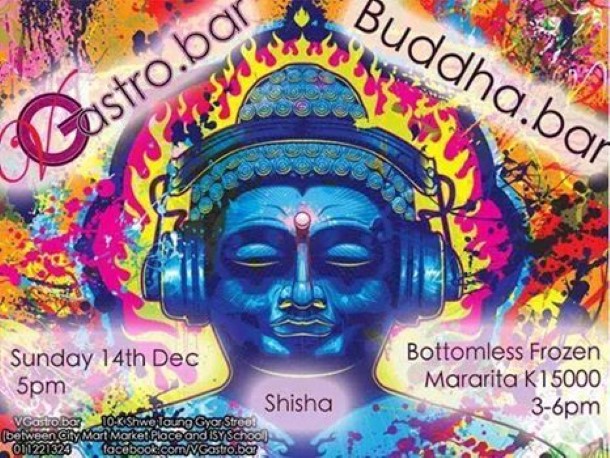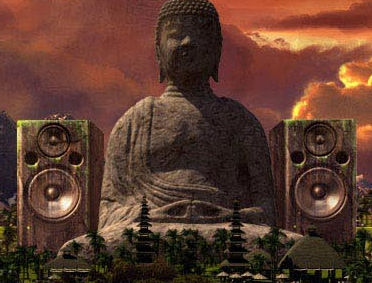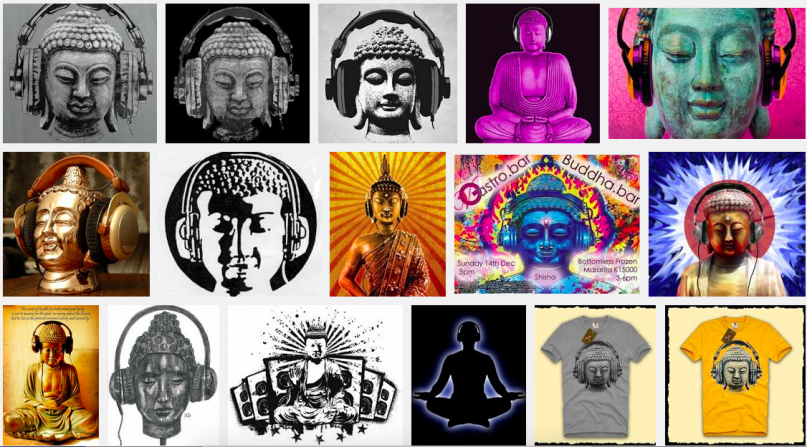I’ve spent more than a few nights sipping cocktails at Buddha-Bar Dubai surrounded by statues of the eponymous sage. The popular franchise has locations in Moscow, Manila, Monte Carlo and more. None in Myanmar.
On Tuesday, a Myanmar court sentenced New Zealand bar manager Phillip Blackwood and locals Htut Ko Ko Lwin and Tun Thurein to two and a half years imprisonment with hard labor for insulting religion.
Their offense? Promoting their swanky new tapas bar and restaurant on Facebook with an image of the Buddha wearing headphones:
Compare that to the Buddha-Bar franchise’s homepage, which features the Buddha flanked by speakers:
Or compare it to all of these headphoned Buddhas:
Blackwood’s Facebook post was hardly original. In different contexts it may not have even raised eyebrows. But in Myanmar, with Buddhist nationalism on an epic upswing ahead of this year’s general election, it was deemed criminal.
The world has watched Myanmar’s recent political reforms with hope — hope that freedom of expression, democratic processes and religious tolerance would improve. Undeniable progress on some of these fronts has been tempered by crippling backslides.
Websites have been unblocked and newspapers can now print opposition leader Aung San Suu Kyi’s face on the front page, but journalists are still being imprisoned for “upsetting the government” and killed in military custody.
Students are no longer dying by the thousands while protesting, as happened in 1988, but they are protesting and being forcibly dispersed and arrested in the process, feeling increasingly disillusioned and disenfranchised.
It’s hard to cite slight silver linings on the religious tolerance front when clashes, primarily between Buddhists and Muslims, have left at least 240 people dead since 2012.
Myanmar law prohibits exploiting religion for political gain. This hasn’t stopped politicians from appealing to politically expedient and widely held fears that Buddhism is under serious threat, primarily from the country’s Muslim minority, which represents just 5 percent of the total population.
Such fears have bolstered support for controversial “protection of race and religion laws,” which would restrict religious conversion, interfaith marriage and other common rights if enacted.
They’ve also contributed to the dire situation of predominantly Muslim Rohingyas in western Rakhine State, the plight of which I wrote about most recently in December after having spent much of October and November traveling across Myanmar and training journalists.
With Myanmar’s general election scheduled for this fall, politicians are veering hard to the right (à la “King BiBi” ahead of yesterday’s election in Israel) to shore up support among a frightened, overwhelmingly Buddhist constituency.
In this context, I suspect that the “Buddha headphones” arrest and imprisonment—significant and chilling in its own right—will be just one in a series of more ridiculous and egregious human rights violations to come.
I return to Myanmar on Monday for the International Press Institute’s World Congress. Journalist Hannah Beech, who wrote the controversial “Face of Buddhist Terror” TIME Magazine cover article in 2013, was denied a visa to join us at last year’s International Media Conference in Yangon, allegedly for her own safety and so as not to disrupt the proceedings.
Amid Myanmar’s escalating crackdown on free speech, I sincerely hope that this article and previously expressed thoughts don’t get me blacklisted from a country I’ve come to love. More importantly, I hope that real democratic reforms bring real freedom of expression and freedom of religion or belief to Myanmar in the coming year.







